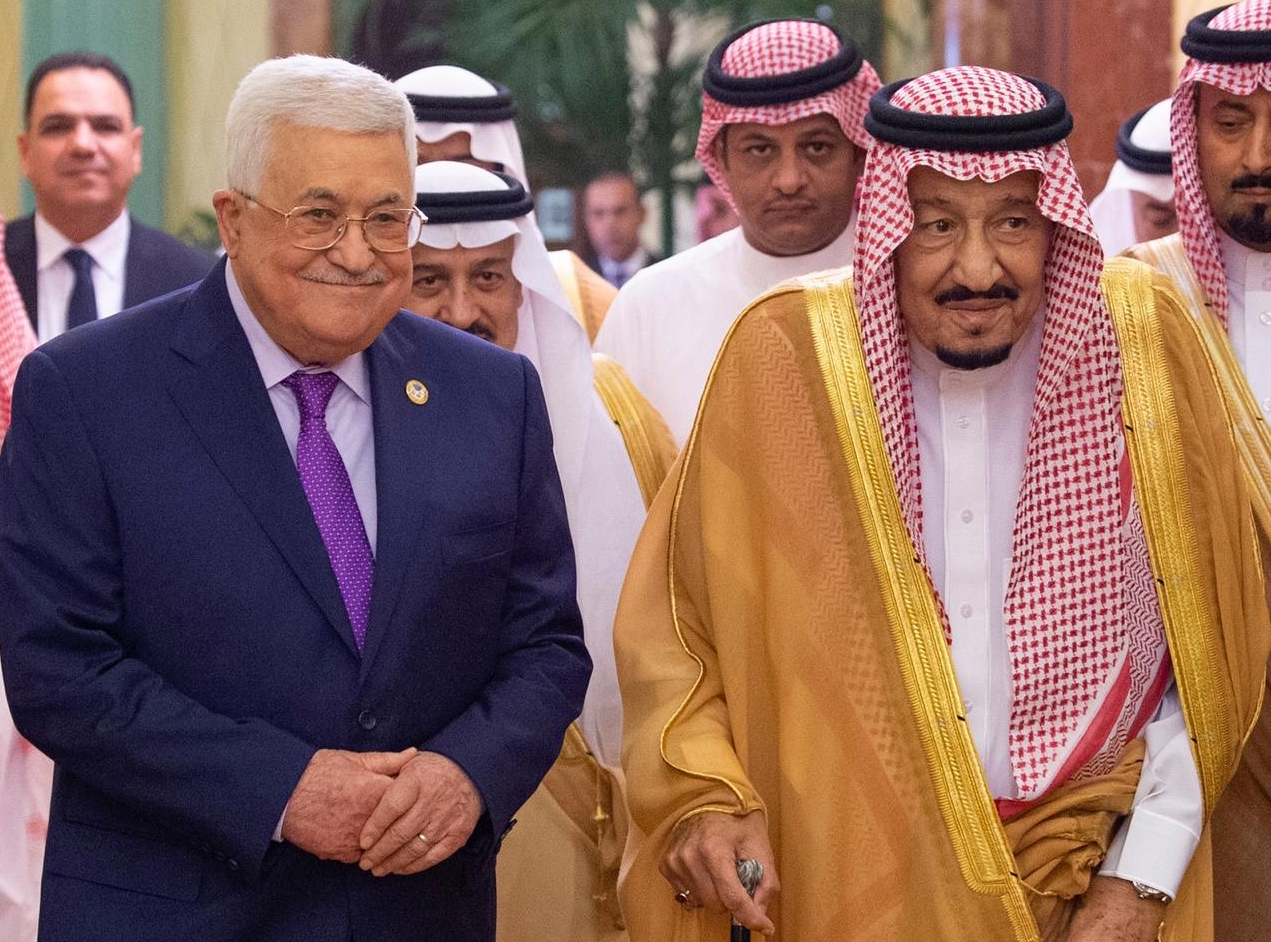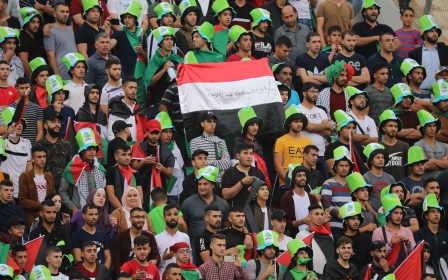Saudi Arabia, Palestinian Authority agree on joint business council

Saudi Arabia and the Palestinian Authority (PA) on Thursday agreed to establish a joint economic committee and a business council, offering possible relief for the cash-strapped Palestinian administration.
The announcement came one day after PA President Mahmoud Abbas arrived in Riyadh and held meetings with King Salman and Crown Prince Mohammed bin Salman, the official Saudi Press Agency reported.
The leaders reached “an agreement on the establishment of a joint economic committee and on a Saudi-Palestinian business council”, SPA said without elaborating further.
Deepening financial crisis
The PA has been in a particularly deep financial crisis since February when Israel decided to invoke a new law to withhold $138m in tax transfers to the Palestinian Authority.
New MEE newsletter: Jerusalem Dispatch
Sign up to get the latest insights and analysis on Israel-Palestine, alongside Turkey Unpacked and other MEE newsletters
The withheld cash would be equal to that of which was paid last year to Palestinians currently and formerly detained by Israel, according to Israeli Prime Minister Benjamin Netanyahu’s office.
Israel alleged the payments encourage further violence, but the PA said the payments constitute a form of welfare for the families who lost their breadwinner. Palestinian prisoners' rights group Addameer estimates that some 40 percent of Palestinian men will be detained by Israeli forces in their lifetime.
Since the passage of the new Israeli law, Abbas had refused to accept partial tax remittances from Israel, saying the PA was entitled to all of the money under the 1994 Paris Protocol.
With tax transfers making up about half of the PA’s budget, according to Palestinian Finance Ministry data, the deduction has forced Abbas’s administration to impose austerity measures, cutting almost half the salaries of its employees.
Declining international support
However, after months of rejecting the tax revenues, on 4 October both Israeli and Palestinian officials said that the PA would once again accept the stipends, Reuters reported last week.
A spokeswoman for the Israeli Finance Ministry said that 1.5bn shekels ($450m) would be handed over to the PA on the following Sunday.
According to PA Minister of Civil Affairs Hussein al-Sheikh, “understandings” had been reached with Israeli Finance Minister Moshe Kahlon, and that both sides would begin discussions on a range of financial issues this month.
The Palestinian economy is intrinsically linked to international support, particularly so since the establishment of the PA in 1993 as part of the Oslo Accords. Saudi Arabia is a prominent financial donor to the PA.
But the current US administration has drastically reduced its contributions to organisations benefitting Palestinians in the past two years, applying financial pressure in the hope of obtaining political compromises on key issues such as the fate of East Jerusalem, refugees' right of return, and the status of illegal Israeli settlements in the West Bank.
In contrast to its ever-shrinking financial aid to Palestinians - while overall foreign donor funding decreased by a third between 2008 and 2018 - the US continues to provide Israel with billions of dollars in military aid each year.
The announcement of a joint Saudi-Palestinian business council comes as Saudi Arabia has been perceived as growing closer with Israel in recent years, even though the relationship has been somewhat of an open secret.
Saudi Arabia has come out in support of the US's controversial “deal of the century” plan for Israel and Palestine, despite it being strongly rejected by all Palestinian political organisations for its strong bias in favour of Israel and for failing to guarantee Palestinian sovereignty.
Earlier this week, a 100-strong Saudi delegation officially entered the occupied West Bank for the first time, on the occasion of a football match. The visit, however, was seen by many Palestinians as a move towards normalisation with Israel, as it controls the borders of the occupied Palestinian territory.
Middle East Eye delivers independent and unrivalled coverage and analysis of the Middle East, North Africa and beyond. To learn more about republishing this content and the associated fees, please fill out this form. More about MEE can be found here.




